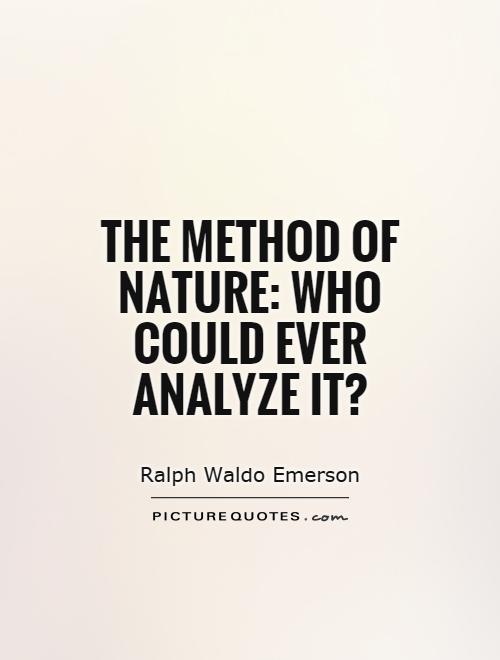The method of nature: who could ever analyze it?

The method of nature: who could ever analyze it?
Ralph Waldo Emerson, a prominent American essayist, poet, and philosopher, was known for his transcendentalist beliefs and his deep reverence for nature. In his essay "Nature," Emerson explores the idea that the natural world is a source of wisdom and inspiration that transcends human understanding. He argues that nature operates according to its own laws and rhythms, and that attempting to analyze or control it is ultimately futile.Emerson begins his essay by asserting that nature is a reflection of the divine, and that by immersing oneself in the natural world, one can come to a deeper understanding of the universe and one's place within it. He writes, "The method of nature: who could ever analyze it?" This statement encapsulates Emerson's belief that nature is a complex and mysterious force that cannot be fully comprehended by human intellect alone.
Emerson goes on to describe nature as a living, breathing entity that is constantly in flux. He writes, "Nature is always consistent, though she feigns to contravene her own laws." This idea of nature as both consistent and unpredictable reflects Emerson's belief in the inherent beauty and complexity of the natural world.
Emerson also emphasizes the importance of experiencing nature firsthand, rather than relying on secondhand accounts or scientific analysis. He writes, "To the senses and the unrenewed understanding, belongs a sort of instinctive belief in the absolute existence of nature." For Emerson, the true value of nature lies in its ability to inspire awe and wonder in those who take the time to observe and appreciate it.












 Friendship Quotes
Friendship Quotes Love Quotes
Love Quotes Life Quotes
Life Quotes Funny Quotes
Funny Quotes Motivational Quotes
Motivational Quotes Inspirational Quotes
Inspirational Quotes